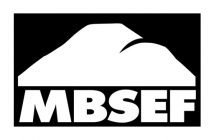When you’re starting up a new company, the chances are that even if you’ve managed to win a little bit of funding you’re going to be strapped for cash. Nevertheless, that doesn’t mean that you have to worry about staying in the black or even reaching the green at all times, as with a brand-new business, you’re probably going to be operating at a bit of a loss for a while until you find your feet in your market and start making a name for yourself. Perseverance is important in business, but so is managing your budget. While you may be able to obtain short term loans in a financial emergency to help bolster your business, it is also important to learn how to budget your business’ cashflow in an optimum capacity. To help you, we’ve put together a quick guide on how you can manage your business with a limited budget.
Working From Home
One of the major resource drains on a company is the cost of an office. While it is always one of the most exciting prospects of having your own business, renting an office space can be extremely expensive, particularly if you’re looking to start up your company in a central city area which is easily commutable for your staff. If you have a limited budget, why not consider having your small team work from home, and host webinars via free programmes such as Skype. The majority of your office staff will often have home phones or mobiles with free minutes or a set number of minutes which they will be able to use to contact their clients with. As long as you have the right staff, this can be an extremely viable and effective option that can help to keep your business’ budget under control.
Consider Outsourcing
Sometimes, hiring a specialist in a particular area for your business can be expensive. There are some skills that require higher paychecks than others, and when you’re a small business or you’re struggling with your budget this year, this isn’t always going to be an option. This is when you should start considering outsourcing. Outsourcing some of the services that you offer your clients, or simply to help you with things like your accounts, can actually prove to be much more cost-effective than having to pay staff members an annual salary to be able to provide you with the same service in-house.
Prepare For The Worst
If you know that your business is regularly dipping into the red, or you’re simply struggling to be able to afford the basics for your employees with your limited budget, make sure that you are always prepared for the worst. Having an additional savings fund for that moment of emergency is always important. While there are a number of other options to help you out in a financial emergency, having a fund can also be extremely beneficial. Whether you’re suffering a minor maintenance problem, or you unexpectedly lose your biggest client, prepare for failure can be a simple way to keep you customers satisfied.





